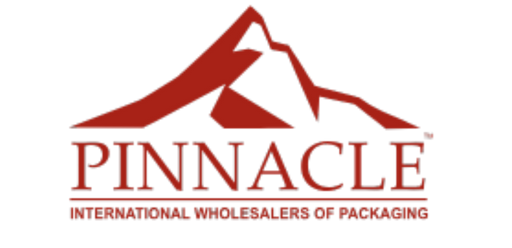How NetSuite Data Migration Tools Simplify Legacy ERP Transitions
- By Manasa, Sr. NetSuite Solution Architect at SuiteWorks TechJuly 23, 2025
Migrating from a legacy ERP to a robust, cloud-based system like NetSuite is often a necessary step in scaling operations and improving business agility. However, the complexity and risk associated with transferring years of data—often from outdated or incompatible systems—can be daunting. Fortunately, NetSuite data migration tools are built to ease this transition, especially when guided by experienced hands.
Having managed multiple end-to-end ERP implementations, I’ve witnessed firsthand how a well-structured data migration can become the backbone of a successful go-live. With the right tools, strategy, and expertise, organizations can ensure accuracy, minimize disruptions, and transition with confidence.
Understanding the Role of NetSuite Data Migration Tools
At its core, NetSuite data migration is not just about moving information—it’s about transforming data into an optimized structure that supports modern business processes. NetSuite offers several tools and features to facilitate this, including:
🔹SuiteScript automation
🔹CSV Import Assistant
🔹Data templates tailored to NetSuite’s architecture
🔹Field-level mapping for customizations
🔹Built-in validation checks and audit capabilities
When paired with structured methodology and deep platform knowledge, these tools significantly reduce the risk of data loss, duplication, and integrity issues during the transition.
Why SuiteScript and CSV Tools Are Game Changers
One of the most powerful assets in the NetSuite ecosystem is SuiteScript—a flexible scripting framework that enables automation of complex data imports. When handling multi-entity, multi-currency, or customized fields, SuiteScript ensures granular control and precision.
For simpler or bulk operations, NetSuite’s CSV Import tool allows structured imports of data such as customers, vendors, transactions, and inventory records. By defining mapping templates, validation steps, and rollback options, teams can efficiently manage even large-scale migrations.
Combined, these NetSuite data migration tools allow businesses to confidently move data from platforms like QuickBooks, Oracle, and other legacy systems.
How NetSuite Data Migration Tools Support Business Continuity
Downtime during migration isn’t just inconvenient—it’s costly. That’s why NetSuite data migration tools are designed to support:
✔️ Historical Data Migration
Organizations can migrate past journal entries, inventory balances, and transaction histories, ensuring financial reports and trends remain intact post-migration.
✔️ Data Cleansing & Standardization
Before any data touches your NetSuite environment, SuiteWorks Tech ensures it is de-duplicated, formatted correctly, and validated. Clean data not only prevents errors but also boosts system performance and reporting clarity.
✔️ Reconciliation & Testing
Data validation routines—both pre- and post-migration—are essential. Using NetSuite’s reconciliation features, our consultants confirm that migrated data aligns with business rules, ensuring nothing is missed.
The SuiteWorks Tech Approach to Data Migration
At SuiteWorks Tech, we’ve built a proven methodology to help businesses maximize the potential of NetSuite data migration tools. Here’s how we typically engage:
Phase 1: Discovery and Assessment
We begin with a thorough review of your legacy systems to identify essential data, understand business processes, and spot inconsistencies early.
Phase 2: Mapping and Tool Selection
Once the data is cleansed, we map it to NetSuite’s data model and select the right tool—SuiteScript or CSV—for each data type.
Phase 3: Testing and Validation
Data is imported in test environments using NetSuite’s sandbox tools. Any issues are resolved through iterative testing cycles.
Phase 4: Cutover and Go-Live
A planned cutover ensures minimal disruption. Our team executes a well-timed migration using automated scripts and validation checklists.
Explore our full approach on our NetSuite Data Migration Services page.
Benefits of Using NetSuite Data Migration Tools
Utilizing these tools ensures not only technical accuracy but also business continuity. Some key benefits include:
🔹Minimized downtime during go-live
🔹Error-free transitions from legacy systems
🔹Automated reconciliation and rollback options
🔹Support for complex structures like subsidiaries or custom fields
🔹Post-migration optimization to tune performance
The flexibility and depth of NetSuite’s native tools empower businesses to move faster without compromising accuracy or control.
Post-Migration Optimization Is Just As Critical
Migration doesn’t end when the data is in NetSuite. Our team continues to support businesses with:
🔹Dashboard tuning
🔹Search optimization
🔹Unused record cleanup
🔹Field customization adjustments
🔹User training and onboarding
These steps ensure that your NetSuite instance not only holds your legacy data but also elevates how your teams use it.
Take the Next Step with NetSuite Data Migration
Whether you’re a fast-scaling startup or an established enterprise, adopting NetSuite doesn’t have to be intimidating. The right NetSuite data migration tools, guided by experienced consultants, can turn even the most complex legacy transition into a structured, stress-free process.
To learn more or schedule a tailored demo, visit our NetSuite Data Migration Services page.
Book a Free Consultation with Our NetSuite Experts
Our NetSuite Solutions
Written By

Manasa
Manasa is a Senior NetSuite Solution Architect at SuiteWorks Tech, with over 10 years of experience designing and implementing NetSuite-based solutions across industries. She has led successful implementations across retail, distribution, manufacturing, and service-based industries. Her expertise spans automation, customization, and AI integration for NetSuite systems. She specializes in creating tailored SuiteApps that streamline operations and increase ROI.























Working with SuiteWorks Tech on our AI Ordering Chatbot for NetSuite was outstanding. They delivered quickly, professionally, and with impressive attention to detail. I’m thrilled with the results and highly recommend their services.
Craig Michaud Partner, Evolve Salon Systems